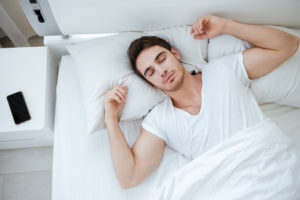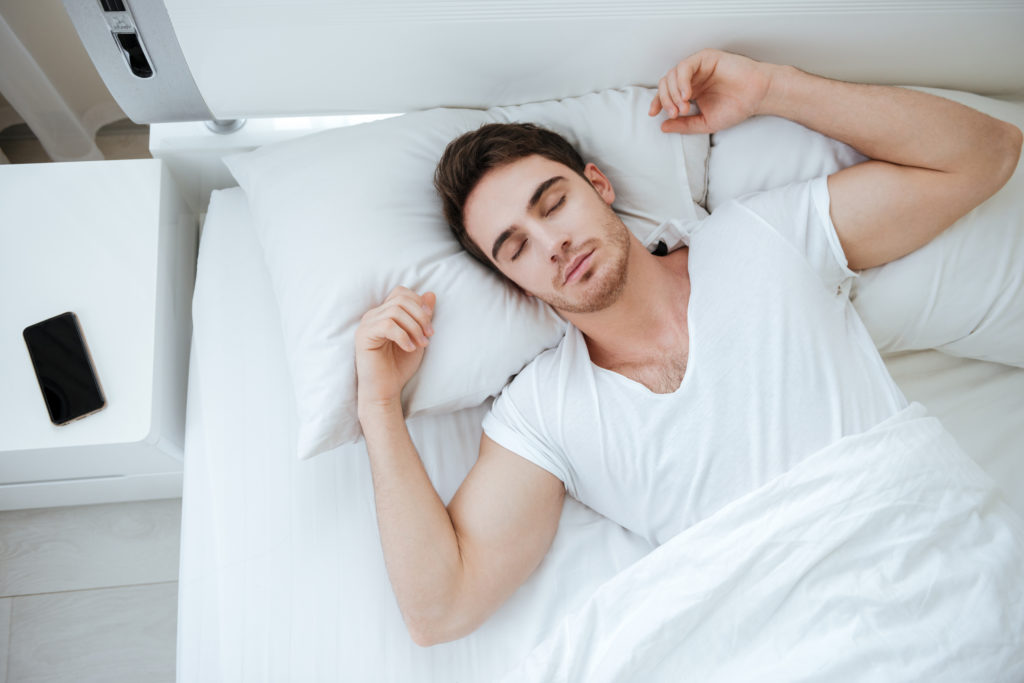Nine ways for better sleep
Everyone knows that good sleep is essential to feeling your best during the day, but getting a good night’s sleep isn’t usually a simple matter. Many things can keep you from sleeping well at night, including bright lights and loud noises when it’s time to go to bed. In addition, prolonged lack of sleep can result in anxiety and depression. Luckily, you can take some simple steps to help you sleep better. Here are nine tips that will help you create a restful environment for sleeping at night:

1. Have a bedtime routine
One of the most important things to ensure proper sleep is to stick to a regular bedtime and waking up time every day, even on weekends. While it might feel natural to stay up late on the weekends and sleep in, these changes can interfere with your ability to fall asleep at night. Once you create this routine, it turns into a subconscious habit.
2. Make your room calm, dark, and quiet.
If you’re having trouble sleeping at night, try making simple adjustments to your bedroom to create a more restful environment. For example, you can make your room cooler and darker by using heavy curtains on the windows or installing an inexpensive window fan to help circulate air in your bedroom. Finally, you’ll want to limit any light entering your windows by keeping the blinds or curtains closed.
3. Consider using white noise or soothing sleep sounds and meditation music.
Many podcasts apps, audiobooks, and sleep stories are soothing and can help you fall asleep quickly. Just make sure you have a sleep timer on for any devices. Another helpful tip to create a better environment for sleeping is to use white noise and other soothing sounds to help mask outside noises that could interfere with your sleep. There’s also a wide selection of low-cost fans.
4. Change your lighting to red before bed.
Try using lamps with red settings to help you sleep when your bedroom is too dark. They simulate the sunset. Science shows that it helps with melatonin production. The red light also helps regulate the circadian rhythm.
5. Avoid Caffeine, Alcohol, Nicotine, and Other Chemicals that Interfere with sleep.
Caffeine, nicotine, and alcohol are the most commonly consumed things that can harm your sleep. That is because they have vital chemical compounds that activate neurotransmitters in your brain. Nicotine is a stimulant that narrows blood vessels, and caffeine is a diuretic, making you go to the bathroom more often. Both of these things will make you feel exhausted during the day.
If you’re having trouble sleeping through the night, avoid consuming any caffeinated beverages after lunchtime. Instead, opt for decaffeinated coffee or tea if you have caffeine in the evening. Also, try cutting down on how much alcohol you drink before bedtime because it could cause you to wake up in the middle of the night.
6. Exercise Early.
Exercise is a great way to get your body moving and release any excess energy, but if you try exercising before going to bed, it could wake up the brain and make you feel frustrated. So if you do exercise, do it at least three hours before going to sleep.
7. Create your Sleep-Inducing Bedroom
The most important thing you can do to create a restful environment for sleeping at night is to maintain a calm, relaxing sleep area. If your bedroom isn’t conducive to good sleep, try making some changes and see if they help improve your sleep. First, clear out any distraction clutter. Make sure your bed is comfortable and has the quality of sheets and pillowcases. Clutter can stress you out. Move those dirty clothes to the closet, and make the bed every morning: research shows that people who do may sleep better at night.
8. Use Essential Oils
To create a relaxing environment, you can use aromatherapy to help calm your nerves and drift off to sleep. Lavender, chamomile, geranium, and neroli are all calming scents that can help you relax when diffused or inhaled. You also might try spritzing some around the room or putting a few drops of the oil on your pillow so you’ll take in the scent while you sleep.
9. Turn off your devices in your room before
Turn off your devices before you go to sleep. The blue light emitted from screens can interfere with your melatonin production and make it harder for you to fall asleep. For those who use our phones as alarm clocks, try placing them across the room from where you sleep. If you are going to keep screens in your room, make sure they are all set to sleep timers
Lack of sleep can cause physical and mental health issues. For example, it can cause a lack of concentration, affect your memory, and even rise to anxiety and depression. However, you don’t have to let sleep deprivation take over because you can create a better environment by following these simple steps. That way, you can feel your best throughout the day.
